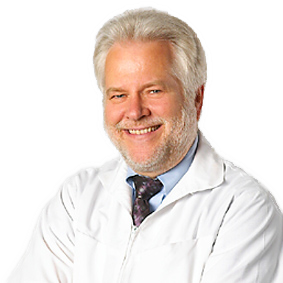WEEKLY HEALTH UPDATE
Week of: Monday OCT. 7, 2013
Courtesy of:
John H. Keefe III, D.C.
(918) 663-1111
| WELLNESS/PREVENTION: Surprising Signs of an Unhealthy Heart Sexual problems Something cardiologists know but the average guy doesn't: Erectile dysfunction (ED) is one of the best early tip-offs to progressive heart disease. Researchers at the Mayo clinic followed men ages 40-49 with erectile dysfunction and found they were twice as likely to develop heart disease as those with no sexual health problems. Snoring, Sleep Apnea, and Other Breathing Problems During Sleep If you snore loudly enough to keep your sleeping partner awake or to force him or her to resort to earplugs, your heart may be at risk as well. Those with sleep apnea were found to have three times the normal risk of having a heart attack within five years. Sore, Swollen, or Bleeding Gums Experts believe that poor circulation due to heart disease could be an underlying cause of periodontal disease. Puffy or Swollen Legs or Feet Fluid retention occurs when the heart doesn't pump strongly enough and blood doesn't carry waste products away from tissues. Edema usually starts in the feet, ankles, fingers, hands, and legs because they're furthest from the heart, where circulation is poorer. Irregular Heartbeat or Arrhythmia An early sign that something in the cardiovascular system is out of whack is irregular heartbeat, or arrhythmia. It may feel like your heart is skipping beats, beating too fast, or pounding too hard. Constriction or Aching in the Chest or Shoulder The most common symptom of coronary artery disease (CAD) is angina, a type of chest pain. Shortness of Breath An early sign that something is wrong with a major bodily system is shortness of breath, typically with exercise, exertion, and stress. (Typically, shortness of breath indicates either early-stage heart disease or early-stage lung disease. | ||
IN THE NEWS: Girls who eat peanut butter may have improved breast health later in life Eating more peanut butter may help improve girls’ breast health later in life, according to a new study from Washington University and Harvard Medical School. Researchers from the two universities analyzed the health histories of 9,039 U.S. girls from 1996 to 2001, when they were between the ages of 9 and 15, and later from 2005 to 2010, when they were 18 to 30 years old. The findings showed that girls who ate peanut butter or nuts two times a week were 39 percent less likely to develop benign breast disease by the time they turned 30, compared to girls who never ate peanut butter or nuts.
CHIROPRACTIC: Cancer Treatment Centers of America Highlighted in ACA News Cover Story Arlington, Va.—The American Chiropractic Association (ACA) today announced that Cancer Treatment Centers of America (CTCA)—a pioneer in integrative care, incorporating chiropractic services and other supportive therapies into its advanced, evidenced-based cancer treatments. At CTCA’s five regional hospitals, chiropractic physicians work on teams alongside surgeons and oncologists to support cancer patients during their treatment. Its patient-centered approach came from a simple question, “If your mother had cancer, how would you want her to be treated?” CTCA’s founder, Richard J. Stephenson, lost his mother to cancer and wished that her treatment had been more focused on providing comprehensive care in addition to the advanced treatment options she needed.
Visit our web site: keefeclinic.com&facebook/keefeclinic

